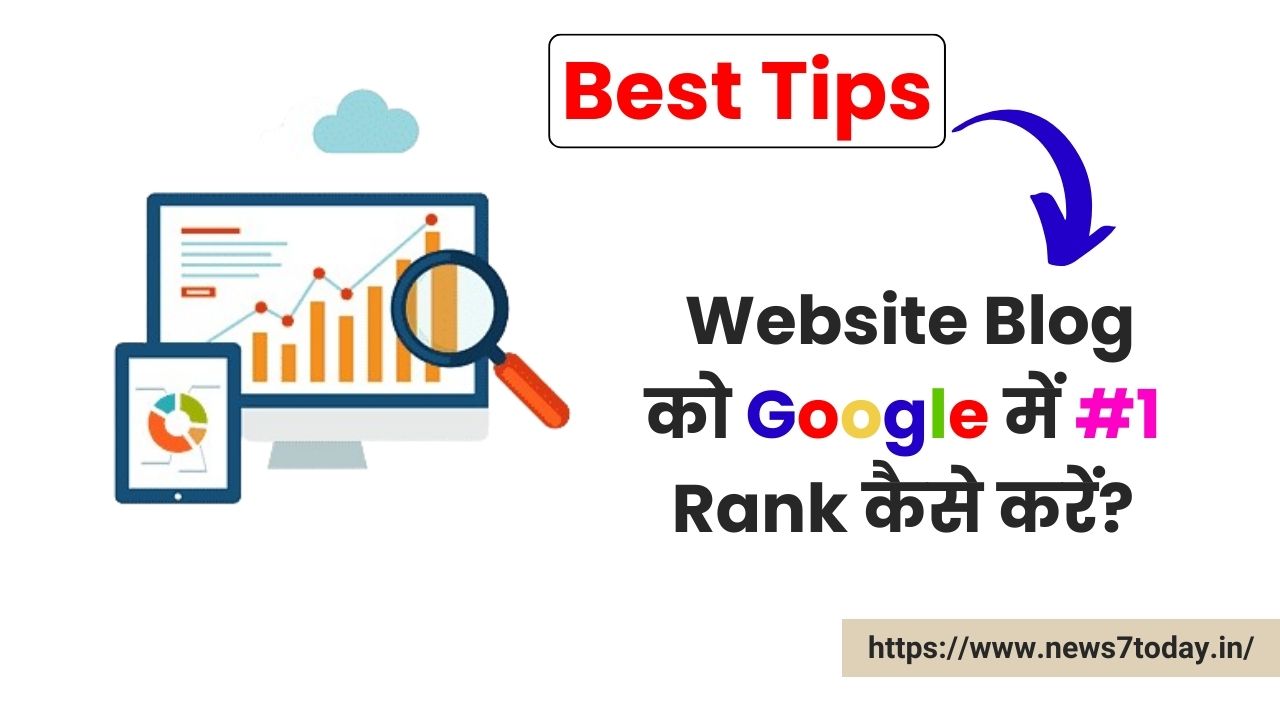How To Find Organic Keywords & Improve Site Rankings in 2023

Keyword research is a critical aspect of any search engine optimization (SEO) strategy. By finding the right keywords, you can increase your website’s visibility, attract more relevant traffic, and ultimately, improve your search engine rankings. In this blog post, we’ll go over the steps you need to take to what are organic keywords?, Why are organic keywords important?, How to find organic keywords and improve your rankings in 2023.
What are Organic Keywords?
Organic keywords refer to the keywords that users type into search engines to find information online. These keywords are used by search engines to understand the context and relevance of a website or web page and to determine which pages to show in search results for a particular search query. Organic keywords are different from paid keywords, which are purchased as part of a paid search advertising campaign. Organic keywords are more focused on natural, relevant content and user intent, while paid keywords are more focused on immediate visibility and conversion.
Why are Organic Keywords Important?
Organic keywords are important because they can significantly impact a website’s visibility and search engine rankings. By targeting the right organic keywords, you can increase the likelihood of your website appearing at the top of search engine results pages (SERPs) for those keywords. This, in turn, can help drive more traffic to your website, improve your online visibility, and increase brand awareness.
Additionally, organic keywords can help you reach a highly targeted audience. When someone performs a search using a specific keyword, they are likely looking for information related to that keyword. By targeting organic keywords that are relevant to your business and the products or services you offer, you can attract visitors who are actively searching for what you have to offer.
Targeting organic keywords can also help establish your website’s credibility and authority in your industry. This can lead to increased trust among your target audience and improve your website’s overall user experience.
How to Find Organic Keywords?
Finding organic keywords is an important step in any search engine optimization (SEO) strategy. Here are some steps you can follow to find organic keywords for your website:
Conduct Market and Competitor Research – Research your market and competitors to understand what keywords they’re targeting and what keywords your target audience is likely to use.
Use Keyword Research Tools – There are several keyword research tools available that can help you find organic keywords. Some popular tools include Google Keyword Planner, SEMrush, Ahrefs, Moz Keyword Explorer, and Ubersuggest. These tools can provide you with data on search volume, competition, and related keywords.
Analyze Your Website’s Current Traffic – Use Google Analytics to see which keywords are currently driving traffic to your website. You can also use tools such as Google Search Console to see which keywords your website is ranking for and how well it’s performing.
Look at Your Website’s Content – Analyze your website’s content to see what keywords you’re already using and which ones you can target in the future.
Consider User Intent – When researching keywords, consider the user’s intent behind their search. Are they looking for information, a product, or a service? By understanding user intent, you can find keywords that are relevant to your business and the products or services you offer.
Use Long-Tail Keywords – Long-tail keywords are longer, more specific phrases that tend to have lower competition and can drive highly targeted traffic to your website.
How to Improve Your Site Rankings in 2023
Once you have identified the list of organic keywords, you can easily improve the ranking of your site. Follow the tips given below to improve search engine ranking in 2023 through organic keywords of your site.
By following these steps, you can be able to improve your website visibility and search engine rankings by using organic keywords. It takes about 6 months to rank the site in search engines. So keep working on your site continuously. Don’t forget to constantly monitor your progress and make adjustments as needed to make sure you’re targeting the right keywords and optimizing your website effectively.
Some tips and guides have been given to improve the ranking of the site in 2023, must be read till the end.
Determine Your Target Audience –
Before you start researching keywords, it’s important to determine who your target audience is. This includes understanding their interests, demographics, pain points, and the problems they’re trying to solve. This information will help you determine what keywords they’re likely to use when searching for products or services like yours.
Conduct Keyword Research –
There are several keyword research tools available that can help you find the right keywords for your website. Some popular tools include Google Keyword Planner, SEMrush, Ahrefs, Moz Keyword Explorer, and Ubersuggest.
When conducting keyword research, you’ll want to focus on finding keywords that have a high search volume and low competition. This will give you a better chance of ranking well for those keywords and attracting organic traffic to your website.
Use Long-Tail Keywords –
Long-tail keywords are longer, more specific phrases that target a specific audience. They tend to have lower competition and can drive highly targeted traffic to your website. For example, instead of using the keyword “running shoes”, you could use the long-tail keyword “best running shoes for flat feet”.
Long-tail keywords are also useful because they can help you rank for multiple keywords with one piece of content. For example, a blog post about “best running shoes for flat feet” could potentially rank for other keywords such as “best shoes for flat feet”, “best running shoes”, and “shoes for flat feet”.
Use Keyword-Rich Titles and Meta Descriptions –
Once you’ve identified your target keywords, it’s important to use them in your website’s titles and meta descriptions. These are the descriptions that appear in the search results and give potential visitors an idea of what your website is about.
Your title should be no more than 60 characters and should include your target keyword. Your meta description should be no more than 160 characters and should also include your target keyword. This will help search engines understand the relevance of your website for that particular keyword.
Optimize Your Website’s Content –
In addition to using keyword-rich titles and meta descriptions, it’s also important to optimize your website’s content for your target keywords. This includes using your target keywords in your headlines, subheadings, and throughout the body of your content.
When optimizing your content, it’s important to ensure that your content is high-quality, informative, and relevant. This will help keep visitors on your website for longer and increase the likelihood of them sharing your content with others.
Build Quality Backlinks –
Backlinks are links from other websites that point to your website. They’re important because they help search engines understand the relevance and authority of your website. The more high-quality backlinks you have, the higher your website will rank in the search results.
To build quality backlinks, you should focus on creating high-quality, informative content that others will want to link to. You can also reach out to other websites in your niche and ask for a link back to your website.
Monitor Your Progress –
Once you’ve implemented these steps, it’s important to monitor your progress and make adjustments as needed. This includes monitoring your search engine rankings, the traffic to your website.
Conclusion
Finding and using organic keywords is a critical component of any search engine optimization (SEO) strategy. By targeting the right keywords, you can increase your website’s visibility and search engine rankings, drive targeted traffic, and establish your website’s credibility and authority.
When using organic and using long-tail keywords to improve your site ranking, remember to incorporate them into your website’s content, optimize your website for on-page SEO, create high-quality content, and continually monitor your site traffic and make adjustments as needed.
Frequently Asked Questions
Q: What is the difference between organic keywords and paid keywords?
Organic keywords are the keywords that users type into search engines to find information online, while paid keywords are purchased as part of a paid search advertising campaign. Organic keywords are more focused on natural, relevant content and user intent, while paid keywords are more focused on immediate visibility and conversion.
Q: How often should I update my organic keywords?
It’s recommended to regularly update your organic keywords to stay current with the latest trends and to ensure that you’re targeting the right keywords. This can be done on a monthly or quarterly basis, or as needed.
Q: Can using too many keywords negatively impact my rankings?
Yes, using too many keywords, known as keyword stuffing, can negatively impact your website’s ranking. Search engines penalize websites that engage in this practice as it’s seen as an attempt to manipulate search engine rankings.
Q: How can I ensure that I’m using keywords effectively on my website?
To ensure that you’re using keywords effectively on your website, focus on creating high-quality, relevant content that accurately represents your business and the products or services you offer. Additionally, make sure to optimize your website for on-page SEO and continually monitor your progress and make adjustments as needed.
Q: Is it necessary to use all of the keywords I’ve found in my content?
No, it’s not necessary to use all of the keywords you’ve found in your content. Instead, focus on using a select few keywords that are relevant to your business and the products or services you offer, and that accurately represent the content on your website.
Read More – Best Guide: How To Optimize Images for Search in 2023
Best Guide: What is a Referring Domain
How Can Get Google to Crawl Your Website Instantly
Fannie Mae HomePath: What Home Buyers Should Know About it
What is the American Dream Downpayment Act / 529(b) Plan?










3 Comments